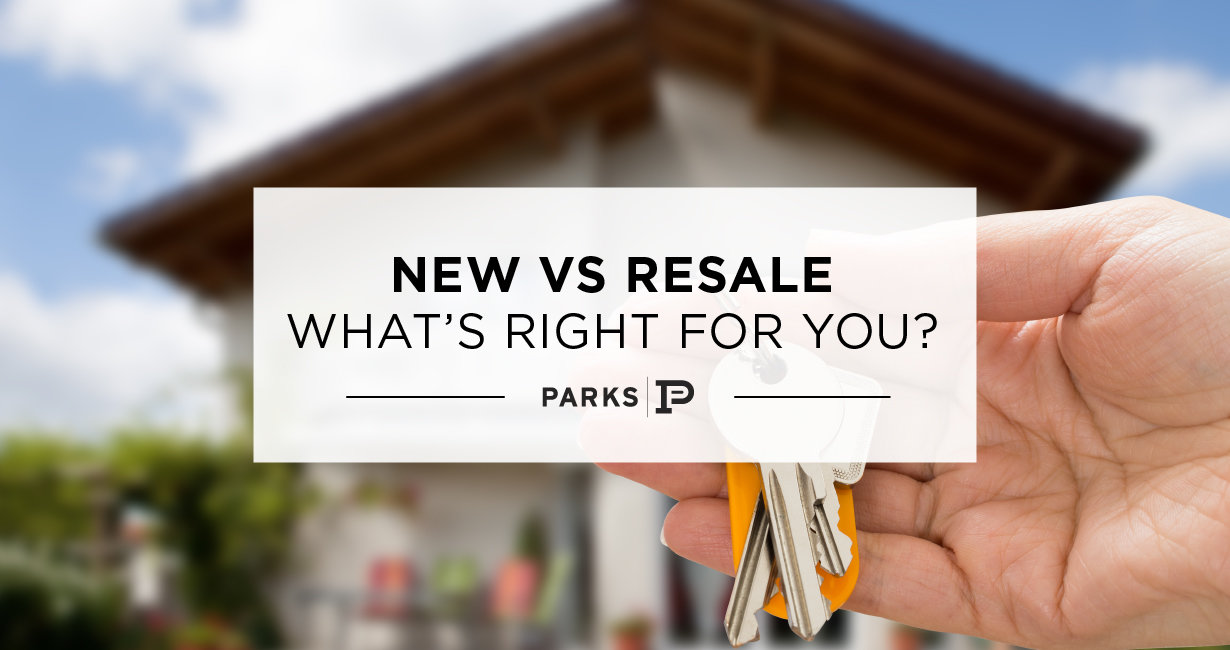
When it comes to home buying it feels like there are already limitless decisions to comb through of wants, needs, hopes, and budgets. While it can feel like there isn’t an easy way to start narrowing down what you are going to prioritize looking at or searching for, there is one important distinction that, if an obvious choice comes to you, you could easily mitigate a lot of time-wasting in the process. That decision is whether or not you are interested in a new construction home, or a resale home. Below we’ve laid out some of the biggest benefits about each type of home-buying. We hope this helps make your decision even a tiny bit easier!
Perks of New Construction Homes
The “Green” Aspect
Whether it’s more on a cost basis or an environmental basis - a new build will almost always have more energy-efficient aspects of nearly every part of the home. There are now higher standards and certifications for everything from wall coverings, windows, roofs, appliances … you name it, there are now raised standards. For most new homes, energy use is one of the forefront thoughts in the design and build, and in older homes, it simply was not. While you can retrofit an older home to be more energy-efficient, there are high costs associated, and sometimes there are things you simply can’t just work around.
Less Risk with Replacement Costs
Obvious as it may be, new homes, built with new materials and appliances are less likely to require costly repairs and maintenance. While there is always the risk that something breaks, or gives way too soon, most home builders offer warranties on their new builds, in addition to the fact that the major appliances typically come with a manufacturer's warranty. Because of newer, more engineered materials - typically the actual materials themselves of a new home also require less base maintenance.
Safety
While this is not saying in any way that older homes are “not” safe, there are some safety aspects that will be held to higher standards. New building codes mean stricter guidelines for everything from fire safety to the off-gassing of building materials and better air filtration. There are even built-in security systems coming with most new homes now.
Customization (In Some Ways)
With new builds, there are typically options to customize upfront - literally built in from the very beginning. This could include entire floor plans, hardware, light fixtures, and paint color. This is a great cost-saving way of “customizing” a home without having to do a major renovation, but there are also typically limited options to choose from.
Perks of Resale Homes
More House for Your Buck
Not a complete blanket statement, but in most cases - you can get more house for your money with a resale than a new build. There is also typically more room for negotiation in the price and buying process, as well as sometimes different tax and closing costs associated with resale homes.
Location
Not a given, but typically resale homes are in more dense, convenient locations, closer into the urban core. This can also mean tighter knit, more established neighborhoods (and less guessing on where or how the neighborhood will grow). Older homes and neighborhoods also likely have more mature landscapes with bigger trees and more foliage. There’s been plenty of time to grow!
Charm
Some call it “character”, some call it “charm”, but there are some elements of style and design that come with an older home that simply can’t be replicated in any new build or renovation. To some, that element of charm is a must.
Customization (In Some Ways)
With more negotiation room and hopefully some money saved, there will likely be space that you can build into the budget for renovation and customization. Without pre-approved builder options, there’s a little more lee-way to customize with your exact preference in mind. However, there is the caveat in that you can’t completely ignore what’s already there or truly not there with the home you’re working with.
Posted by Parks Compass on
Leave A Comment